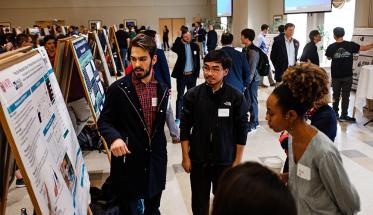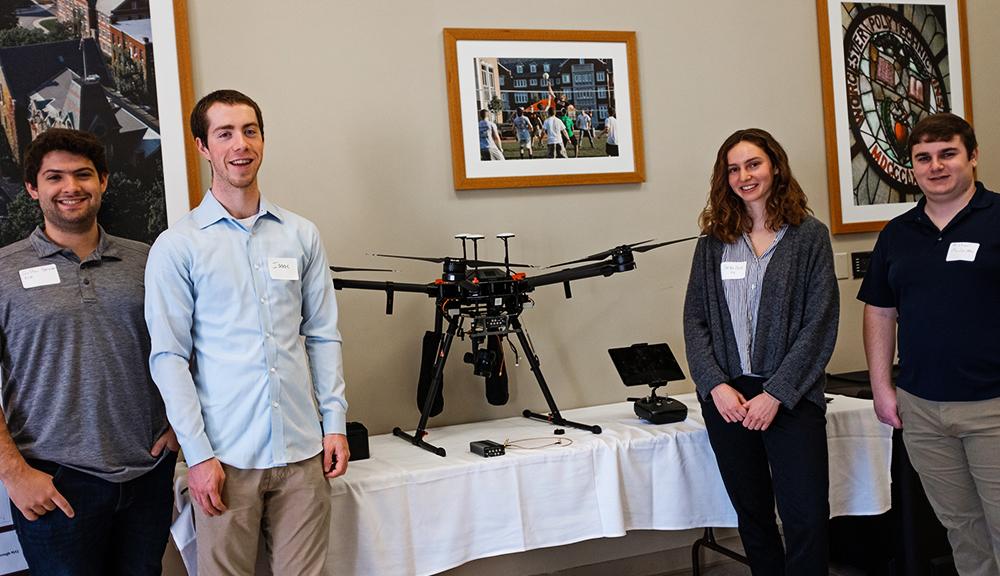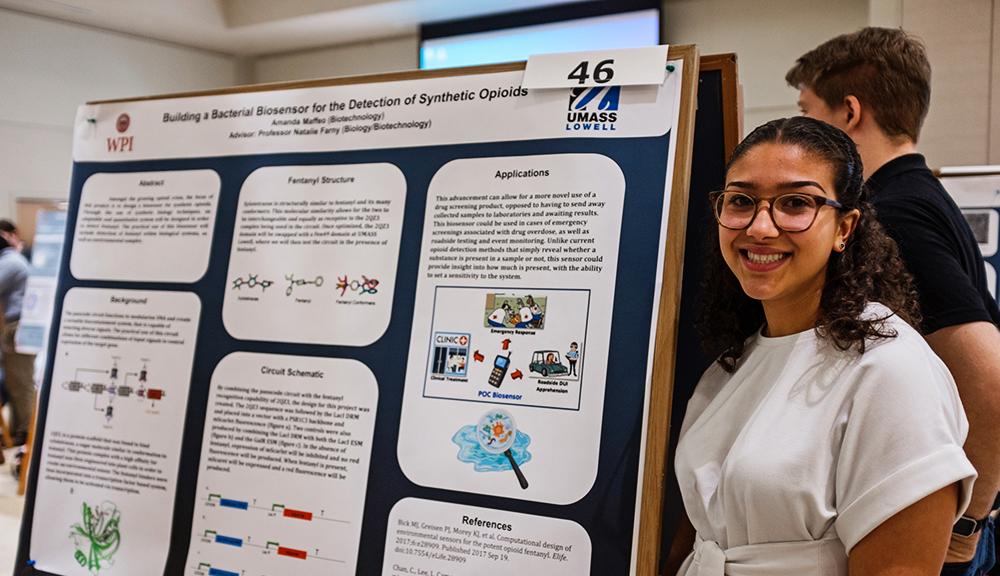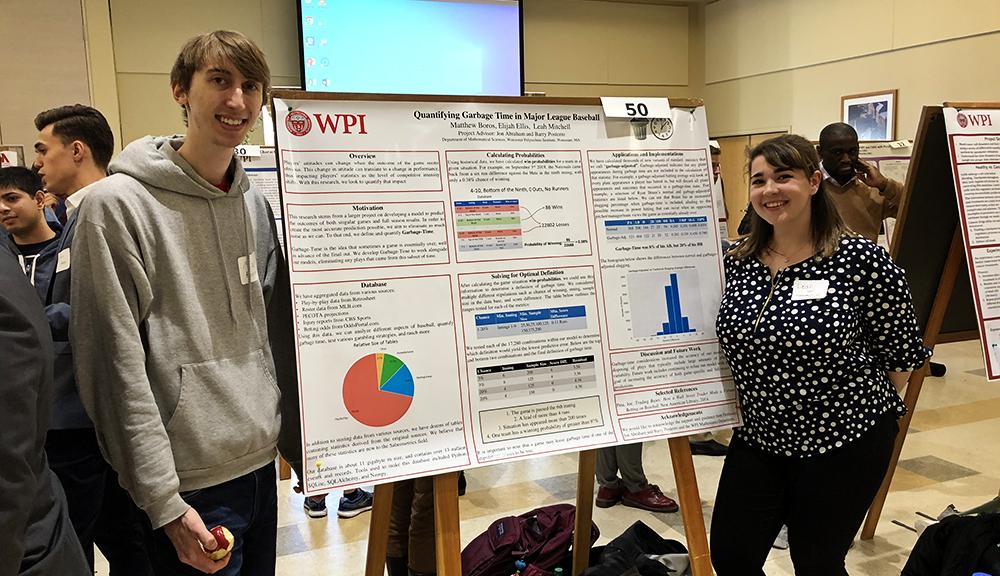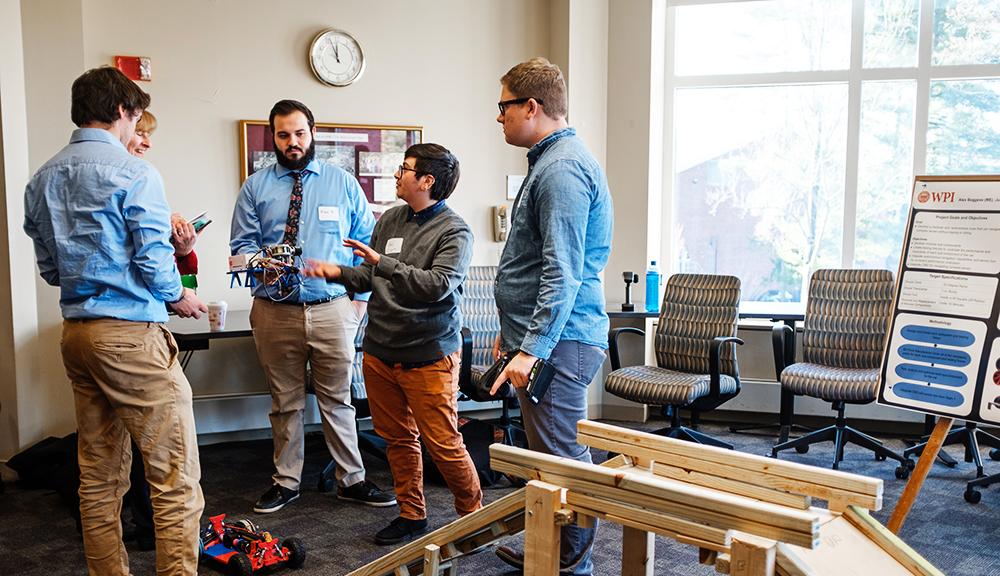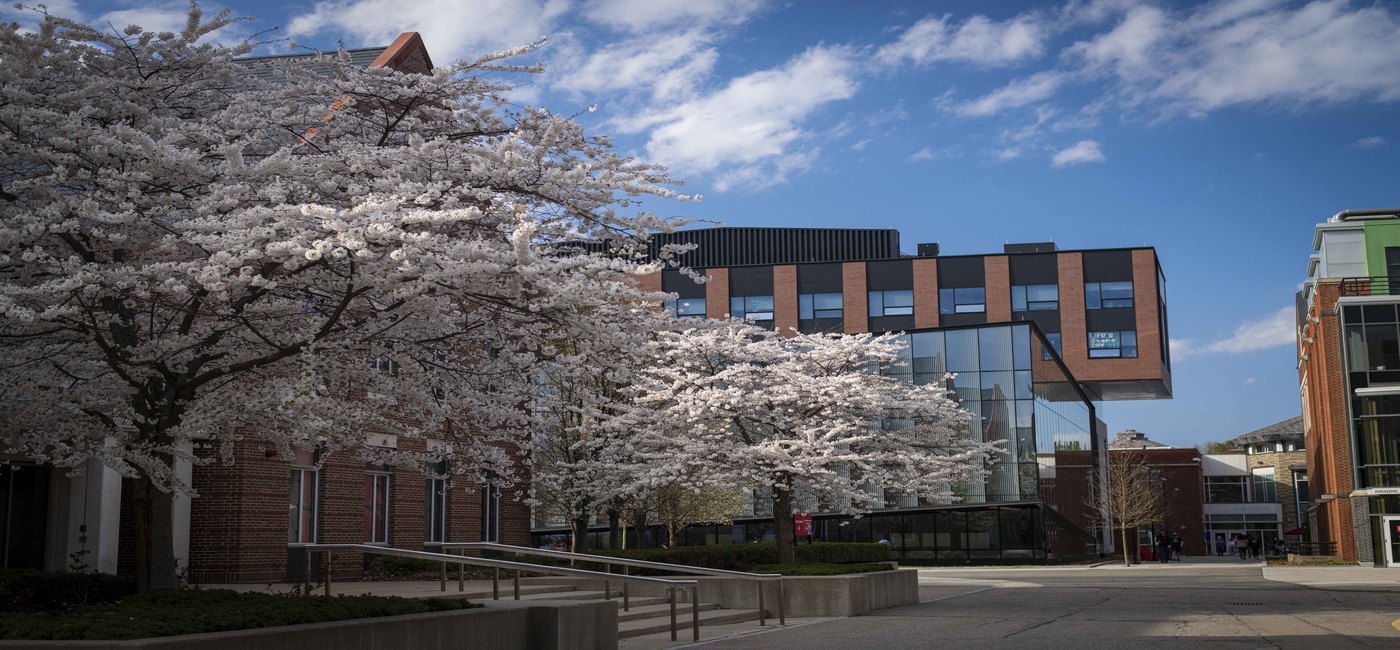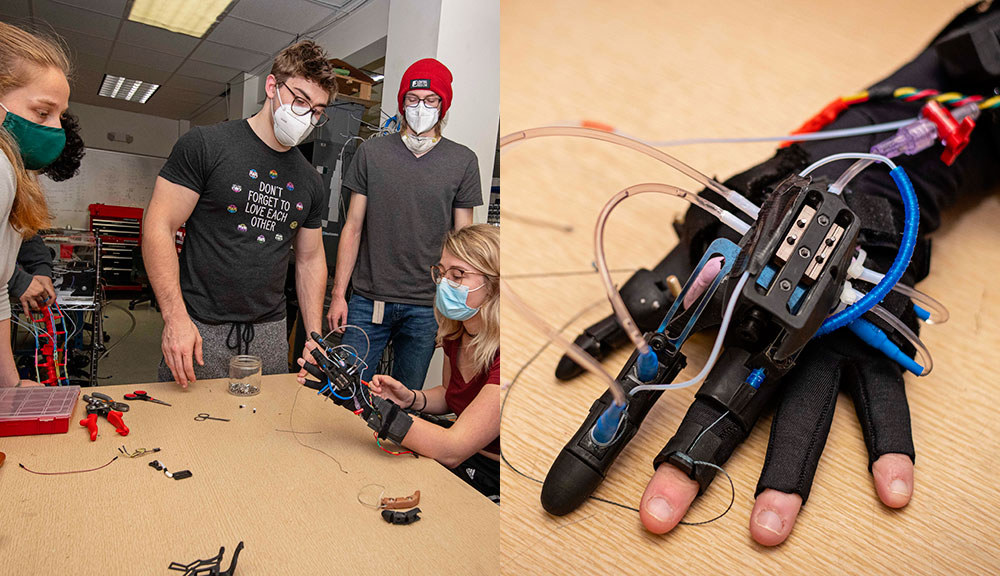Undergraduate research at WPI is meaningful, purpose driven, and widespread. Undergraduates had a chance to talk about their research and why they are doing it at the first Works in Progress Undergraduate Research Symposium held November 25.
More than 90 posters and demos representing 25 of the 32 majors at WPI were presented over the two hours, packing the Rubin Campus Center Odeum with students, faculty members, staff, and visitors. Most of the undergraduate research presentations were by seniors working on their Major Qualifying Project (MQP), but a little over 20 percent of the presentations were made by sophomore or junior researchers. There was even one presentation by a high school student from the Massachusetts Academy of Math and Science.
Suzanne Weekes, associate dean of undergraduate studies, spearheaded the event through the Office of Undergraduate Research. “We brought all this great disciplinary work out of the departments and programs and into the larger community so connections could be made and attendees and presenters could see the beautiful and impressive range of work that is being done by our young researchers,” she says. “Undergraduate research is so much a part of undergraduate studies and what we do at this university that we take it for granted, but it needs to be highlighted, celebrated, and promoted. We can’t cede our place and our leadership in the national landscape of undergraduate research.”
Weekes thinks research presentations are extremely valuable. “Having to communicate and articulate our work really makes us converge to the answers to questions, such as What problem are we really trying to solve or investigate? Why is this an important problem? What is our plan to make progress?” she says.
The Herd spoke with a few of the presenters to hear why an undergraduate research experience is important to them. The undergraduate research symposium’s abstracts can be found in the 2019 Works in Progress Abstract Book (PDF).
